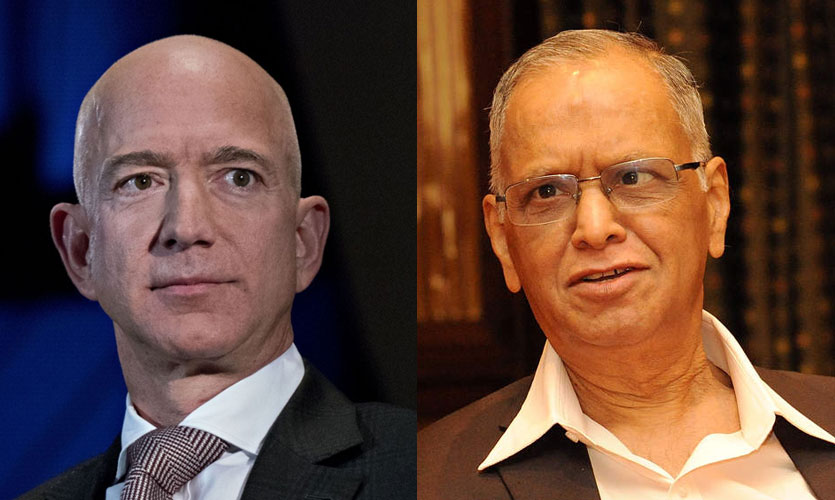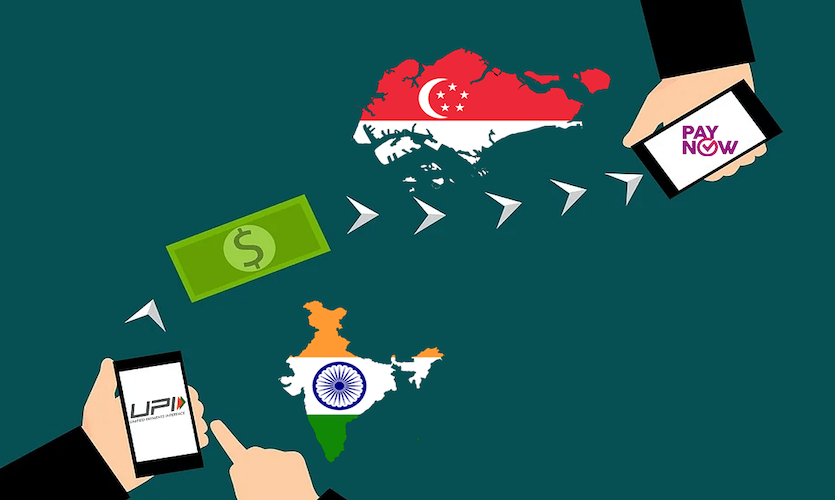Billionaire and Catamaran Ventures owner Narayana Murthy is reportedly dissolving a supposedly contentious joint venture with Amazon.com, Inc. The move is expected to deliver a possible blow to the e-commerce behemoth, as the country’s internet market approaches $1 trillion.
The companies stated on Monday that the seven-year-old venture, Prione Business Services Pvt. Ltd. will be halting operations in mid-2022. The company, which began by assisting merchants in getting their products online before becoming a prominent seller itself, is owned by Jeff Bezos’ Seattle-based Amazon and Murthy’s private investment firm, Catamaran Ventures LLP.
In a statement, the partners stated that they “mutually agreed not to continue their joint venture beyond the conclusion of its present term”. According to them, their venture has allowed over 300,000 vendors and entrepreneurs to go online, and 4 million merchants to accept digital payments.
Amazon has been chastised for its business methods in India, which small sellers claim are unfair and unlawful. The Competition Commission of India launched an investigation against the business and Walmart Inc.-owned Flipkart last year after local merchants said the giants exploited their power through steep discounts, exclusive tie-ups, and special treatment of some vendors. On Monday, the Supreme Court denied Amazon and Flipkart’s requests to suspend the inquiry, allowing the antitrust investigation to continue.
This has supposedly added to the pressure on Amazon and Murthy to discontinue their cooperation, which has been condemned for going against the spirit of India’s e-commerce regulations.
“We expect big giants like Amazon, Flipkart volunteering for inquiry and transparency and you don’t even want it,” Chief Justice of India, N.V. Ramana said in the ruling. “Inquiry has to be permitted,” he added.
Prione was founded in 2014, a year after Amazon began selling in India, with Amazon owning 49 percent and Catamaran Ventures controlling a 51 percent stake. The plan was to train and bring “new-to-online merchants” such as weavers and women-led companies to the Amazon platform. They were taught basic skills such as photographing and categorising their items, writing correct descriptions and providing customer service.
“We are happy that Prione has leveraged the best global practices for e-commerce in India, created jobs, and provided Indian customers access to a wide selection of products by leveraging technology,” said Catamaran president M.D. Ranganath.
“As our JV [joint venture] with Amazon reaches the end of its tenure, I reflect on this successful partnership that introduced the power of digitisation and empowered SMBs across big and small towns. We would like to thank Amazon for the partnership that leaves behind a strong legacy of shaping e-commerce in India,” added Ranganath.
More controversially, Prione established a wholly owned subsidiary named Cloudtail, which sold products online alongside the independent stores. It evolved to be one of Amazon’s top sellers by striking deals with luxury companies like Apple and OnePlus, in part due to what smaller merchants claimed was preferential treatment. Even as recently as two years ago, Cloudtail accounted for more than a third of all Amazon sales.
Later, India modified its rules to prohibit platforms such as Amazon from selling items from affiliates or giving preferential treatment to affiliated firms.
Amazon reduced its investment in Prione to 24 percent in February 2019, while Catamaran Ventures increased its stake to 76 percent. The Confederation of All India Traders (CAIT), which represents millions of small merchants in India, said that the reorganisation was an ingenious technique to get around the new laws. Cloudtail currently accounts for less than one-fourth of all Amazon sales. Both firms have claimed that they are completely in accordance with the law. In recent months, trade organisations representing millions of small merchants in India have urged India’s commerce ministry to tighten the restrictions even more.
Read more: Big Blow To Tesla As India Rules Out Reduction In Import Taxes On Electric Vehicles
When Amazon CEO Jeff Bezos visited India in early 2020, enraged small business owners protested outside the location where he was speaking, chanting, “Amazon Go Back.”
In a letter addressed to Murthy in July, the Indian Sellers Collective, which represents small seller groups, urged him to discontinue the agreement with Amazon. Bloomberg News obtained a copy of the letter, which accused the billionaire of harming his own country’s interests.
“Mr Murthy has been in cahoots with Amazon through a name-lending agreement with Cloudtail functioning as a front for Amazon’s retail operation and has violated the aims of the Government of India’s policies,” the Collective wrote. It continued, “Just for a fixed fee or returns, Mr Murthy has sacrificed the interests and livelihood of millions of small traders in India and left them at the mercy of Amazon.”
A comparable Amazon joint venture with Pune’s Patni Group expires in May 2022, but no decision has been made on its continuation. Amazon has made significant investments in India, which has a billion-plus potential online consumers and a rising economy. During his visit last year, Bezos vowed that the firm would invest an additional $1 billion on top of the $5.5 billion already committed. Walmart outdid itself in terms of investment, first acquiring Flipkart for $16 billion and then spending billions more to accelerate its growth.









